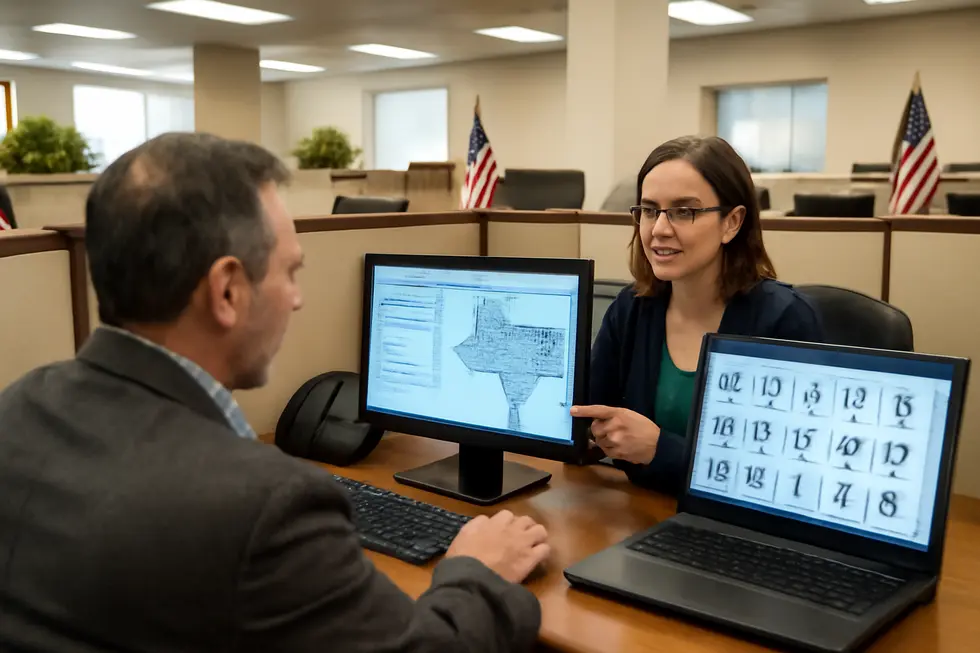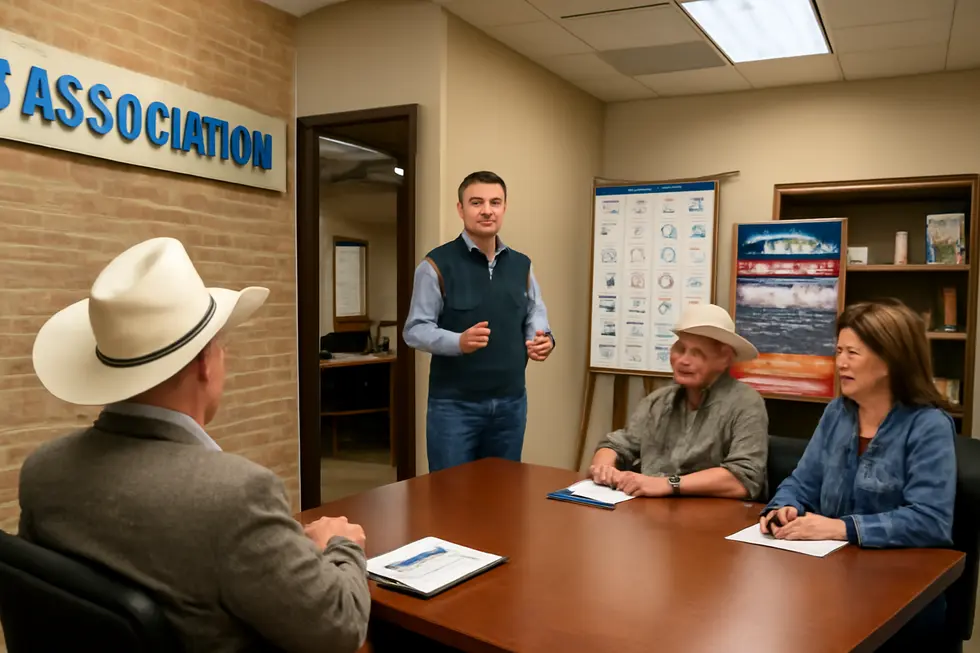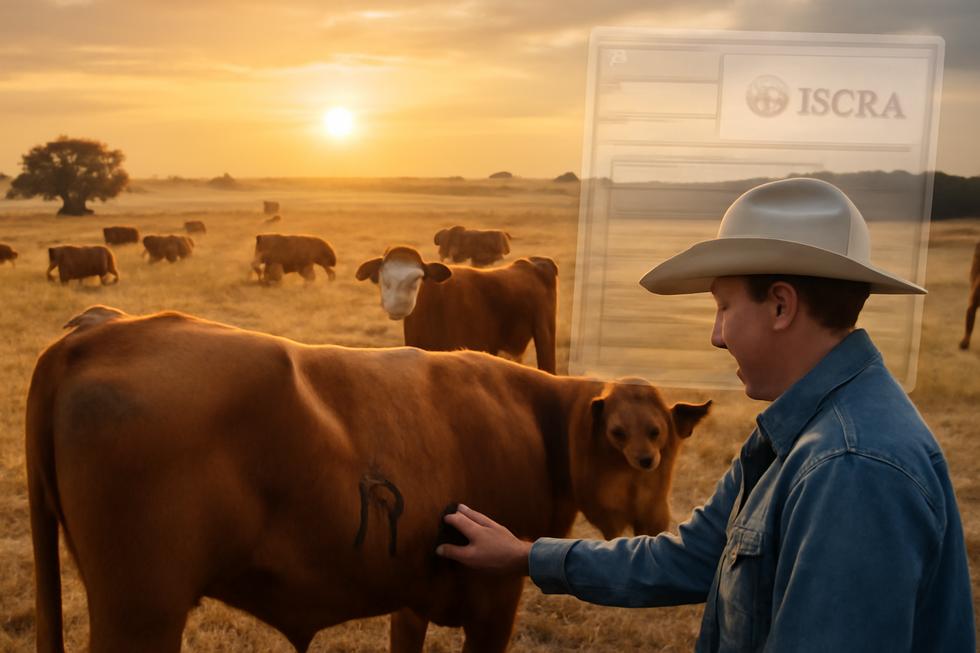Introduction
Cattle brand registration in Texas forms a critical component of livestock management, security, and business operations for ranchers and livestock owners. This process is legally mandated and meticulously structured to ensure clear identification and protection of cattle ownership across the state. Understanding the legal requirements, technological advancements, and the roles played by organizations in this space empowers business owners to comply efficiently and secure their investments. The first chapter details the essential legal procedures and compliance mandates for registering a cattle brand in Texas. Following this, the second chapter explores the modernization of this registration process through the state’s electronic registry system and how technology simplifies compliance, record-keeping, and enforcement. Finally, the third chapter highlights the pivotal role of the Texas & Southwestern Cattle Raisers Association (TSCRA), an organization instrumental in guiding business owners through branding and livestock protection challenges while advocating for ranchers’ interests. Together, these chapters provide a thorough understanding of cattle brand registration tailored specifically for business owners looking to operate with confidence in Texas’ livestock industry.
Tables of Contents
Chapter 1: Legal Requirements and Procedures for Cattle Brand Registration Texas
- Navigating Legal Mandates and Public Notice for Cattle Brand Registration in Texas
- Navigating Brand Ownership, Transfers, and the New Electronic Registry System in Texas Cattle Branding
Chapter 2: Modernization and Technological Advances in Cattle Brand Registration Texas
- Digital Transformation of Cattle Brand Registration: Advancing Livestock Management through Technology Integration
- Transforming Brand Management: Regulatory Framework and Digital Enforcement Enhancements in Texas Cattle Branding
Chapter 3: Role of Organizations in Cattle Brand Registration Texas: The Texas & Southwestern Cattle Raisers Association
- How the Texas & Southwestern Cattle Raisers Association Champions Legal Protection and Advocacy in Texas Brand Registration
- How TSCRA Strengthens Brand Registration Through Enforcement, Inspection, and Rancher Education
Chapter 1: Legal Requirements and Procedures for Cattle Brand Registration Texas

1. Navigating Legal Mandates and Public Notice for Cattle Brand Registration in Texas
Cattle brand registration in Texas is governed by a set of defined legal mandates designed to protect livestock owners’ rights and ensure clear identification of animals across the state. Central to these requirements is the obligation for every livestock owner to adopt and legally record a unique brand. This official recording is managed by the Texas Animal Health Commission (TAHC), which oversees a centralized electronic registry established under recent legislative reforms. These regulatory measures replace the former decentralized, paper-based systems once handled at the county level, streamlining the registration process for ranchers and enhancing enforcement capabilities against livestock theft.
The process begins with the selection of a distinct brand design, which must then be recorded with the TAHC. Before this brand can gain formal recognition in the registry, Texas law mandates a public notice procedure to promote transparency and prevent conflicts. Specifically, the intended brand must be advertised at least once in a newspaper or publication distributed within the state. This public advertising serves a crucial function: it offers an opportunity for any party who believes the proposed brand infringes on existing branding rights to file a written objection. Should no such objection arise within the notice period, the path is cleared for official registration.
Once recorded, the brand’s details are documented comprehensively. This record includes a facsimile of the brand, ensuring the design is visually preserved, the owner’s complete contact information, the exact designated location on the livestock where the brand may be applied, and the specific types of animals authorized to bear the brand. Adherence to the specified branding location is not merely recommended but legally required; it is unlawful to apply the brand anywhere other than the location stated on the registration certificate. This rule safeguards the integrity of the branding system and assists in identifying cattle accurately.
The legal requirements extend beyond initial registration to cover transfer and leasing of brands. Any sale or transfer of the brand itself must be formalized through a bill of sale, which carries the same weight and formalities as real estate deeds. This document must be signed, notarized, and recorded with TAHC to make ownership changes legally binding. Similarly, any lease agreements granting usage rights to a brand must be signed by the owner and recorded in accordance with statutory regulations. These stringent documentation requirements protect owners’ interests and maintain clear chain-of-title records, which are essential for dispute resolution and law enforcement.
Recent legislation has introduced significant modernization by enabling brand registration submissions via a statewide online system. This digital platform, administered by TAHC, allows livestock owners and authorized agents to file, advertise, and record brands electronically, vastly reducing delays and administrative burdens associated with paper filings. It also consolidates brand records into a single searchable database accessible to law enforcement agencies, promoting rapid response to incidents involving stray or stolen cattle.
The integration of the public notice procedure with this electronic registry embodies a balanced approach: it maintains transparency and safeguards against conflicting claims while leveraging technology to support ranchers’ needs. This system ensures that all stakeholders have access to up-to-date brand information, which is vital in a state like Texas where cattle raising is both an economic pillar and a cultural heritage.
Livestock owners seeking to comply must remember the sequence of legal obligations: first, adopt and design a unique brand; second, advertise the brand publicly within Texas; third, await and address any objections; and finally, complete the formal registration with TAHC through the electronic system. Failure to meet these requirements can result in the invalidation of branding rights and complicate ownership proof.
For additional guidance, including detailed instructions on form submission, fees, and deadlines, ranchers can consult the Texas Animal Health Commission’s official website. The Texas & Southwestern Cattle Raisers Association also provides valuable resources and advocacy supporting brand registration and livestock protection in Texas.
This fusion of legal precision, public accountability, and digital innovation in Texas’ cattle brand registration system reinforces the state’s commitment to preserving livestock ownership rights while enhancing regulatory efficiency. For a deeper understanding of intellectual property protections that may complement branding efforts in business contexts, readers may also explore information about trademarks and their role in commerce at trademark registration guidance.
With these frameworks in place, cattle owners can confidently navigate the legal landscape, ensure their branding rights are secured, and contribute to the broader system that protects Texas’ ranching legacy.
2. Navigating Brand Ownership, Transfers, and the New Electronic Registry System in Texas Cattle Branding
In Texas, the legal landscape surrounding cattle brand ownership, leases, and transfers has evolved significantly with the introduction of a centralized electronic brand registry overseen by the Texas Animal Health Commission (TAHC). This transformation marks a decisive move from the bygone era of county-level, paper-based records to a streamlined digital system designed to enhance clarity, accessibility, and enforcement of cattle branding laws.
At the heart of Texas’ cattle identification system lies the essential principle that every brand must be officially recorded with the state. This registration is not merely a formality but a legal mandate that requires the submission of a precise graphic facsimile of the brand, detailed owner contact information, and the designation of the exact location on the animal’s body where the brand will be applied. The law strictly prohibits the application of a brand anywhere outside its recorded location, emphasizing the importance of uniformity in brand identification. This measure helps prevent fraud, misidentification, and disputes over ownership, ensuring that brands serve their primary purpose as reliable markers of cattle origin.
The ownership of a recorded brand is a valuable asset, but Texas law also recognizes the practicalities of leasing brands. Ranchers may lease their brands to others, perhaps for arrangements involving shared grazing rights or livestock management. For such leases to have legal standing, the lease agreement must be formally signed by the brand owner and filed with the TAHC’s division responsible for brand registration. This process preserves a transparent record that protects both parties’ interests and maintains the integrity of the brand system. Failure to file such agreements can complicate ownership claims and diminish legal protections.
When it comes to transferring brand ownership, Texas treats these transactions with a level of formality akin to real estate deeds. The sale or transfer of a brand must be documented by a bill of sale that is signed and acknowledged properly, then recorded with the TAHC. This procedure guarantees that changes in brand ownership are legally recognized and public, helping to prevent disputes, double claims, or unlawful use of brands. Prospective buyers and sellers should adhere closely to these protocols to ensure the transfer is clean, clear, and enforceable under Texas law.
A major breakthrough in brand management came with Senate Bill 503 (SB 503), effective September 1, 2025, which established a statewide electronic brand registry. This modern system not only replaces fragmented paper records but also introduces a convenient online platform through which brand owners can voluntarily register or update information about their brands. The ability to register brands electronically streamlines the process, cutting down on administrative delays, reducing errors, and providing law enforcement with immediate access to verified brand records. Additionally, the law allows authorized agents to act on behalf of owners for brand registration, making the process even more accessible for busy ranchers or those unable to appear in person.
This shift to digital registry management significantly strengthens the enforcement of cattle branding regulations. Applying a brand to an unrecorded location is legally tantamount to using an unrecorded brand — an unlawful act penalized by Texas statutes. The electronic system supports exact verification of brand placement and ownership, which is critical in a state where cattle theft and misbranding remain serious concerns.
While these brand ownership and registration obligations form the backbone of the system, ranchers must also understand the broader context of Texas livestock law. Texas operates primarily as an open-range state, meaning that cattle may roam free unless counties are specifically designated as closed range. Closed-range counties impose stricter fencing requirements, which can intersect with branding practices since brands help confirm ownership when disputes arise over stray or lost livestock. Understanding your local county’s status is essential, as it affects livestock management approaches and the practical application of cattle brands.
Overall, the modern Texas cattle brand system reflects a balance of tradition and innovation. It honors the longstanding legal framework that protects ranchers’ property rights while embracing technology to make brand registration, transfer, and enforcement more transparent and efficient. The interconnected web of registration requirements, lease filings, transfer formalities, and the electronic registry ensures that cattle brands remain an effective tool for ownership identification and livestock protection across the state.
Ranchers seeking to navigate this system should consult the Texas Animal Health Commission for access to the electronic registry and detailed legal guidance. Additional resources from the Texas State Law Library and informational materials on SB 503 provide further insights into managing brand records and compliance. For ranchers concerned about the complexities of brand ownership and legal protection, understanding these updated requirements is critical for safeguarding their cattle and maintaining the integrity of their operation.
For businesses or individuals exploring trademark protections alongside cattle brand registration, understanding the distinctions and legal nuances is key; more information can be found on trademark2go.com.
More comprehensive details and official forms related to cattle brand registration and transfers are available through the Texas Animal Health Commission website, the authoritative source for the latest regulations and procedural updates.
Chapter 2: Modernization and Technological Advances in Cattle Brand Registration Texas

1. Digital Transformation of Cattle Brand Registration: Advancing Livestock Management through Technology Integration
The landscape of cattle brand registration in Texas has undergone a profound transformation driven by the integration of digital technology and regulatory innovation. This shift is epitomized by the Texas Animal Health Commission’s (TAHC) rollout of a centralized, statewide electronic brand registry, a system that officially supersedes the traditional paper-based filing once maintained independently by each county clerk. The adoption of this digital platform is more than a mere digitization of records—it represents a fundamental advancement in how livestock ownership is documented, tracked, and legally protected throughout the state.
Effective September 1, 2025, following the passage of Senate Bill 503 by the 89th Texas Legislature, the electronic cattle brand registry serves as a single consolidated database. This not only streamlines the process for ranchers registering their brands but also enhances transparency and accessibility of brand information for all stakeholders. Previously, duplicate or conflicting records could arise due to decentralization, complicating law enforcement efforts and ownership verification. The centralized system now allows authorized users—including ranchers, county clerks, and law enforcement agents—to quickly access accurate, up-to-date brand data from anywhere in Texas.
Central to this transformation is the ability for livestock owners to file new brands, record changes to existing brands, and verify ownership status online through interfaces authorized by TAHC. This shift to electronic filing reduces administrative delays associated with paper submissions, minimizes human error, and significantly cuts down on mail processing times. Moreover, the system includes mandatory features such as digital facsimiles of brand designs, precise location identifiers on specific types of livestock, and owner contact details, ensuring all critical information is consistently recorded and easily retrievable.
From an enforcement perspective, the digital registry is a vital tool in combating livestock theft and stray cattle situations. Law enforcement agencies can rapidly cross-reference brand data against recovered animals, shortening investigation timelines and improving recovery rates for stolen or lost livestock. This integration supports a statewide ecosystem where information flows efficiently between ranchers, regulatory bodies, and policing units, fostering accountability and security across Texas’s extensive ranchlands.
This technological leap also aligns with broader trends in agricultural modernization. As Texas ranchers increasingly incorporate automated health monitoring and livestock tracking tools, the digital brand registry complements these systems by serving as a reliable foundation for verifying animal identity and ownership. The registry’s electronic nature enables future enhancements, such as integration with RFID tags and GPS tracking, potentially creating a comprehensive digital profile for each animal.
Additionally, the registry’s legal framework has been updated to accommodate digital functionalities without compromising traditional protections. For instance, before recording a new brand, the system facilitates required public notification via state newspapers or bulletins to invite formal objections, preserving the due process rights of all livestock owners. Transfers or sales of brands, meanwhile, must still follow formalized procedures involving documented bills of sale—but these too may be processed more efficiently through the centralized digital platform.
These capabilities highlight how Texas is setting a precedent in livestock management by harnessing technology to simplify regulatory compliance while strengthening the legal infrastructure around cattle branding. Through this digital transformation, ranchers benefit from streamlined workflows, improved access to information, and enhanced protection of their property rights.
Stakeholders seeking to understand or engage with this modernized system are encouraged to consult authoritative resources such as the Texas Animal Health Commission website. There, comprehensive guides, legislative updates, and step-by-step instructions for electronic registration can be found. The Texas Farm Bureau also provides valuable context around the integration of such technologies in agricultural operations, illustrating the broader transformative movement within the industry.
In this evolving environment, the digital cattle brand registry is more than an administrative tool; it is a cornerstone of a modern, efficient, and secure cattle industry in Texas. By embracing technology, the state ensures that brand registration keeps pace with contemporary ranching practices, regulatory expectations, and enforcement needs, safeguarding the interests of livestock owners across this vast agricultural landscape.
For a detailed overview of the legislative mandate behind this change, the full text and implications of Senate Bill 503 can be reviewed through the Texas Animal Health Commission’s official portal: https://www.tahc.texas.gov/
2. Transforming Brand Management: Regulatory Framework and Digital Enforcement Enhancements in Texas Cattle Branding
The evolution of cattle brand registration in Texas reflects a comprehensive integration of government regulation, advanced IT infrastructure, and strengthened enforcement mechanisms. Spearheaded by the Texas Animal Health Commission (TAHC), this transformation addresses long-standing inefficiencies of decentralized, paper-based brand management by instituting a centralized, electronic brand registry. This single, statewide system not only streamlines administrative processes but significantly bolsters the capacity of law enforcement and livestock owners to protect against theft and misidentification.
This modernization was codified through legislation such as Senate Bill 503, passed by the 89th Texas Legislature. SB 503 mandates the electronic transition, dismantling the previous county-level paper records in favor of a unified digital framework. This legislative pivot ensures uniformity in brand registration procedures statewide, reducing duplication and delays inherent in manual file management. Brand owners now have the option to voluntarily register and update brand information online, while authorized agents can act on their behalf, enhancing accessibility and convenience across rural and urban areas alike.
The core of this transformation lies in a sophisticated IT infrastructure designed to handle sensitive livestock identification data at scale. The new system consolidates brand images (facsimiles), ownership details, designated brand locations on animals, and livestock categories into a secure, searchable database accessible to authorized personnel across Texas. Digitization accelerates data entry, retrieval, and verification tasks—it replaces cumbersome paper trails with instant access to current, verified records. Crucially, this infrastructure aligns with initiatives at the federal level, where USDA agricultural IT modernization programs emphasize security, interoperability, and efficiency. By integrating best practices and compliance with cybersecurity standards, the Texas system safeguards data integrity against unauthorized use or tampering.
From a law enforcement perspective, these IT enhancements provide tangible advantages that extend beyond administrative efficiency. The centralized database enables rapid cross-jurisdictional queries, allowing officials to confirm brand ownership and authenticity in real-time during investigations of stolen or stray livestock. This immediacy is vital, as livestock theft has historically been difficult to track due to scattered records and inconsistent brand documentation. The new system supports coordinated enforcement efforts statewide, reducing fraudulent brand applications and the misplacement of brands on unauthorized animals—a practice that had complicated ownership disputes and legal proceedings.
Moreover, the enforcement utility is amplified through digital monitoring and audit trails embedded within the system. Each brand transfer, including sales and leases, must be supported by a documented bill of sale, filed electronically and maintained as a permanent record. This level of traceability discourages illicit transactions and fosters greater accountability among brand owners. The system’s compliance tracking tools simplify inspection and enforcement activities, enabling authorities to swiftly identify irregularities or unauthorized branding placements and initiate corrective actions.
Taken together, the regulatory mandate, IT modernization, and enforcement enhancements represent a paradigm shift for Texas’ cattle brand registration landscape. This initiative not only modernizes administrative protocol but stitches together the diverse network of ranchers, county clerks, and law enforcement into an integrated whole. By leveraging digital tools, the system circumvents historical geographic and bureaucratic barriers, effectively serving a sprawling agricultural economy.
This comprehensive approach follows broader national trends toward digitizing agricultural administration, as spotlighted by USDA programs aimed at upgrading legacy systems across states. Texas’s innovative model serves as a benchmark in harnessing technology to protect livestock heritage and property rights while simplifying compliance for stakeholders. As the system matures, it lays a strong foundation for further enhancements, including potential integration with livestock health records and interstate brand verification initiatives.
For livestock owners navigating this modernized framework, the Texas Animal Health Commission remains the pivotal contact point for official registrations, supported by local county clerk offices embracing digital facilitation. The transition to an electronic system does not merely replace paper; it redefines how cattle brands are documented, protected, and enforced, fostering a more secure and efficient environment for Texas’s vital cattle industry.
For additional detailed guidance about the legislative framework and operational procedures, stakeholders can consult the Texas Farm Bureau’s summary of the new laws effective September 1, 2025 https://www.txfb.org/news/news-releases/article/texas-legislature-2025-farm-bureau-priorities.
Chapter 3: Role of Organizations in Cattle Brand Registration Texas: The Texas & Southwestern Cattle Raisers Association

1. How the Texas & Southwestern Cattle Raisers Association Champions Legal Protection and Advocacy in Texas Brand Registration
The Texas & Southwestern Cattle Raisers Association (TSCRA) stands as a cornerstone institution supporting cattle owners throughout Texas in navigating the complex landscape of cattle brand registration. Beyond simply assisting ranchers with the technicalities of applying their brands, TSCRA fulfills an essential advocacy and legal role that safeguards ownership rights and strengthens the livestock industry’s regulatory framework.
At the heart of TSCRA’s support is comprehensive legal guidance tailored specifically to the intricacies of cattle branding under Texas law. Brand registration regulations, governed principally by the Texas Agriculture Code Section 142, require cattle owners to register their unique brands with the county clerk’s office located within their residence or the area where the brand will be applied on the livestock. This process demands careful adherence to formal application procedures, including paying applicable fees—such as the approximately $15 fee in Hardin County—and submitting precise documentation detailing the brand’s design, location on the animal, and the type of livestock it marks. TSCRA equips its members with clear information and personalized assistance to meet these statutory requirements, ensuring that registrations are filed correctly and efficiently.
However, TSCRA’s role extends well beyond registration compliance. The association actively protects cattle owners’ brand rights through legal representation, especially when disputes arise. Cases often involve contested ownership or the unlawful use of a registered brand, scenarios where TSCRA’s legal team intervenes to assist members in reclaiming stolen livestock and curbing brand misuse. By monitoring and influencing legislative activity, the association advocates for stronger protections against livestock theft and improved mechanisms in managing estray cattle. This forward-looking engagement with lawmakers helps to ensure that Texas’s cattle branding laws evolve to meet the real-world challenges facing ranchers.
The relationship TSCRA maintains with county clerks is both complementary and indispensable. While the clerks serve as the official registrars and custodians of brand records across counties including Hardin and Bandera, TSCRA operates as the organization that educates ranchers, promotes compliance, and stands as a bulwark for legal defense. This partnership results in an ecosystem where formal registration procedures are streamlined and owners can rely on expert guidance and protection simultaneously.
Additionally, TSCRA’s resources offer ongoing support focused on prevention and education. Members gain access to detailed materials about the registration process, estray livestock regulations, theft prevention strategies, and legal recourse options. Such resources help cattle owners preempt complications and understand their rights thoroughly, empowering them to manage their branding with confidence.
Importantly, TSCRA’s advocacy not only protects individual ranchers but also fortifies the broader cattle industry in Texas. By lobbying for enhanced laws related to branding and livestock security, TSCRA ensures the industry’s interests are well represented in the state legislature. Their efforts contribute to a legal environment where cattle ownership is respected, theft is more effectively deterred, and ranchers can conduct business with greater certainty.
The synergy between TSCRA’s legal support and the official duties of county clerks highlights how modern cattle brand registration in Texas benefits from both statutory rigor and community-backed advocacy. This dual approach reflects the state’s dedication to safeguarding ranchers’ property rights while simplifying compliance through electronic systems and authorized agents.
Cattle owners seeking to register a brand or protect their livestock interests in Texas will find TSCRA an invaluable ally. Information and assistance can be accessed via the association’s channels, ensuring continuous support alongside official state resources. For official registrations, contacting the Texas Animal Health Commission or a local county clerk’s office remains essential, as they manage the electronic registration system now central to brand administration.
To explore official county brand registration procedures or file applications, interested parties may visit the Hardin County Clerk’s office website, exemplifying the local administrative interface that works hand-in-hand with TSCRA’s advocacy: Hardin County Clerk’s Office.
Through its multifaceted role in legal guidance, advocacy, conflict resolution, and education, the Texas & Southwestern Cattle Raisers Association continues to be a pivotal force that strengthens cattle brand registration practices across Texas. Their work ensures that ranchers can confidently protect their livestock assets and focus on sustainable, lawful cattle raising in the Lone Star State.
2. How TSCRA Strengthens Brand Registration Through Enforcement, Inspection, and Rancher Education
The Texas & Southwestern Cattle Raisers Association (TSCRA) holds a pivotal role in supporting and enhancing the statewide system of cattle brand registration in Texas. Its influence extends beyond mere advocacy; TSCRA integrates operational law enforcement, meticulous market inspections, and ongoing informal education to protect the integrity of livestock ownership rights. This multifaceted involvement helps sustain a robust cattle branding environment, ensuring registered brands serve their legal and practical purpose throughout the state.
At the core of TSCRA’s operational impact are its Special Rangers, commissioned law enforcement officers dedicated to investigating crimes such as livestock theft and agricultural fraud. In a state where cattle represent a significant economic and cultural asset, protecting these resources is paramount. These Rangers work closely with local authorities and ranchers to identify stolen livestock, trace ownership through meticulous brand records, and prosecute offenders. By deterring theft and aiding recovery efforts, TSCRA directly preserves the trustworthiness of cattle brand registration as a tool for legal identification.
Beyond law enforcement, TSCRA manages a skilled team of brand inspectors. These inspectors play a critical role at numerous livestock markets across Texas, where millions of cattle change hands each year. Their task is to verify the authenticity and registration of brands on animals being sold. This process is essential not only for confirming legal ownership but also for preventing the sale or transport of stolen or improperly identified livestock. By ensuring brands are applied correctly and match registration records, TSCRA’s inspection efforts reinforce the statewide brand registry’s accuracy and reliability.
Importantly, TSCRA bridges practical enforcement with education and outreach. Although it does not operate formalized classroom programs specific to branding regulations, the association’s continuous presence in markets and ranch communities provides ranchers with real-time learning opportunities. Through direct interaction with Special Rangers and inspectors, cattle owners gain valuable insight into proper branding standards, legal obligations, and best practices. This informal education fosters compliance by helping ranchers understand the significance of exact brand placement, timely registration, and lawful brand transfers.
This educational influence is especially crucial given the evolving legal landscape and technological modernization of brand registration in Texas. With the Texas Animal Health Commission (TAHC) transitioning brand records from paper to a centralized electronic system, many ranchers rely on trusted organizations like TSCRA for guidance. TSCRA complements the official registration process, typically handled at county clerk offices, by clarifying procedures, explaining statewide branding laws, and supporting voluntary online registration efforts. This partnership enhances transparency and accessibility across all levels of cattle ownership.
Another important aspect of TSCRA’s role involves assisting with brand transfers. When brands change ownership, a formal bill of sale must be executed and recorded, similarly to real estate transactions, to legally convey rights. TSCRA’s enforcement and outreach personnel encourage adherence to these requirements, preventing disputes and reinforcing a secure transfer system within the cattle industry.
The association’s integrated model—combining enforcement, inspection, and education—creates a sustainable framework that underpins the statewide brand registration system. By consistently working to identify and reduce fraudulent practices, TSCRA protects ranchers’ investments and ensures that registered brands retain their legal validity as markers of ownership. This protection is vital not only during market transactions but also in broader agricultural law enforcement contexts.
In sum, TSCRA’s operational and educational efforts comprehensively support the legal and practical mechanics of cattle brand registration in Texas. Through its Special Rangers’ law enforcement activities, market brand inspections, and rancher education, the association strengthens the framework that secures livestock ownership identification. TSCRA’s work ensures that registered brands continue to serve as reliable, enforceable symbols of property rights, thereby fortifying the entire cattle industry’s integrity within the state.
For livestock owners navigating the intricate requirements of cattle brand registration, TSCRA remains an indispensable resource. Its commitment to law enforcement and rancher support complements the Texas Animal Health Commission’s regulatory authority, making the process more effective and comprehensive. To explore detailed legislative guidelines or to engage with official brand registration procedures, cattle owners are encouraged to visit the Texas Animal Health Commission website directly.
Final thoughts
Understanding the intricate landscape of cattle brand registration in Texas is vital for business owners invested in livestock operations. The process begins with solid legal foundations that define how brands must be adopted, recorded, and transferred to uphold ownership rights. Modern technological advancements have transformed this process into a streamlined, accessible system that increases efficiency and transparency statewide. Complementing these frameworks, organizations like the Texas & Southwestern Cattle Raisers Association provide indispensable resources, advocacy, and protection, reinforcing cattle brand registration’s role as a critical tool for livestock security. Together, these elements form a comprehensive ecosystem enabling business owners to confidently manage and safeguard their cattle, ensuring compliance and long-term operational success in the Texas cattle industry.
Your IP is the foundation of your success – let’s protect it together before it’s too late. We can’t wait to help you turn your ideas into legally secured assets.
About us
undefined


